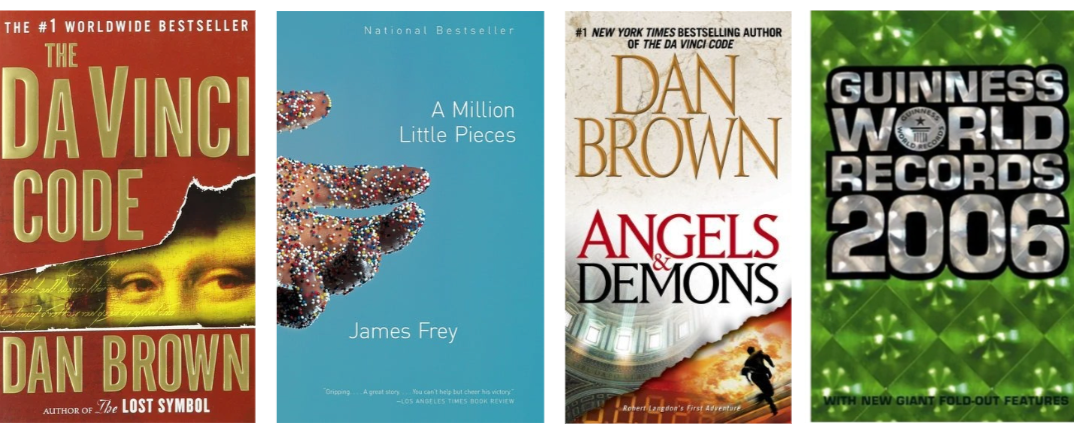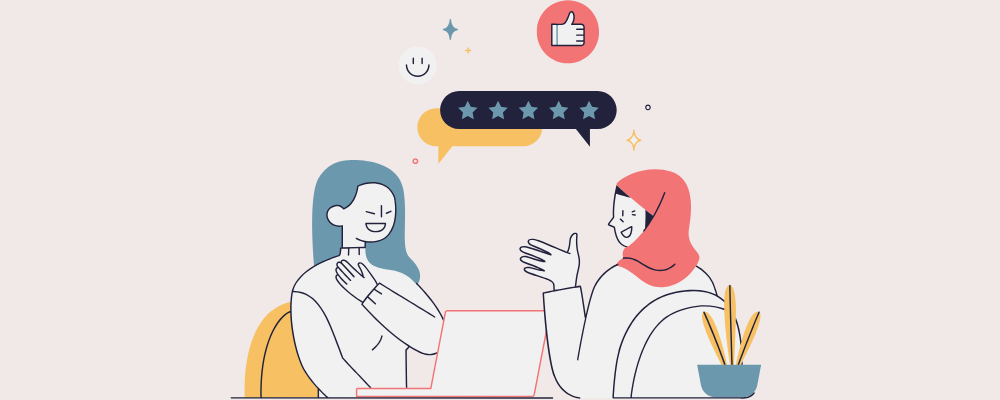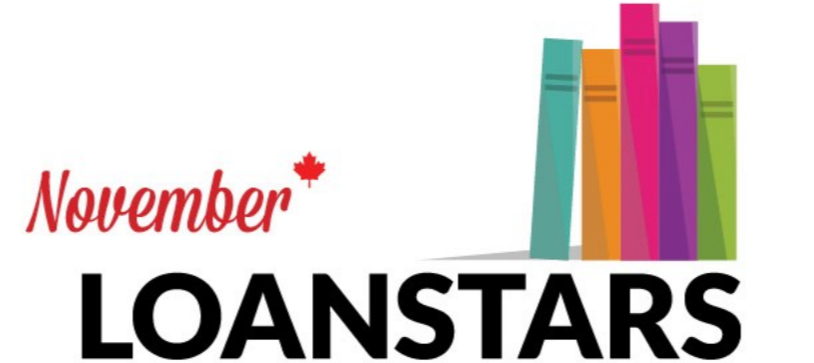In this month’s podcast episode, we take a look at the data on book formats, the people behind the data, and what it means to be a good reader.
(Scroll down for the transcript.)
Want to make sure you never miss an episode of the podcast? You can subscribe for free on Spotify, iTunes, Pocket Casts, TuneIn, or SoundCloud.
Works referenced
A history of the end of reading, or how to survive the ebookalypse
Swapping books for audiobooks has reignited my love of literature
Further reading/listening
Transcript
Adaobi Nnaobi: Welcome to the BookNet Canada podcast. I’m Adaobi Nnaobi, the Marketing & Research Associate and the host of this month’s episode. We recently released a new research study, Tapping into Ebooks: Ebook Use in Canada 2022, our new ebook study surveying the buying, borrowing, and reading habits of Canadian ebook consumers. It also tracks the impact of the COVID-19 pandemic on ebook use by comparing data from 2022 with past years. This month, let’s look at the data on book formats, the people behind the data, and what it means to be a good reader.
According to the Canadian Book Consumer Study 2022, 73% of books purchased by Canadian book buyers in 2022 were print books, 17% were ebooks, and 6% were audiobooks. For book borrowers, 71% of all books borrowed in 2022 were print books, 21% were ebooks, and 8% were audiobooks. Print books are still on top but there seems to be a fear that digital formats may be overtaking the original. Our first ever podcast featured a 2015 Tech Forum session by Kevin Ashton titled, “A history of the end of reading, or how to survive the ebookalypse.” I remember hearing conversations around that time and thinking about whether the ebook would be the format that everyone would want and if it would eventually push out print. There were many theories and ideas and fears that surrounded the new technology. The discourse was not so different from today’s discussions about A.I. and how it will shape our future in different ways. Kevin had a pretty optimistic outlook then about how to survive the new technology of ebooks. Years later, the technology and awareness of ebooks has grown. According to Tapping into Ebooks: Ebook Use in Canada 2022, 36% of Canadian book buyers purchased ebooks and 17% of all book purchases were ebooks in 2022. For Canadian book borrowers, 27% of them borrowed ebooks in 2022, with the number of Canadian ebook checkouts increasing 32% from 2019 to 2022 according to OverDrive. However, the sales and library circulation of print still trumps ebooks. Despite this, I still hear murmurings of the same fears about the downfall of the print book once in a while. It’s the great book debate that won’t die. While ebooks seem to at least have a fighting chance when it comes to favourability, with people like Laura Brady writing an ode to ebooks, I’m not sure I can say the same for audiobooks as some people don’t even consider them real books.
Based on data from the Canadian Leisure and Reading Study 2022, we know that audiobooks are gaining in popularity. The percentage of readers who said that they had not listened to an audiobook at all last year decreased from 56% in 2021 to 49% in 2022. But that’s not our only indicator. Spotify is adding audiobooks to their streaming selection which not only means that they see the potential in the audiobook industry but that with Spotify's massive worldwide reach many more people will be exposed to audiobooks. Audiobooks are a great way to consume literature but there seems to be a stigma that comes with the format. Some of it is mere semantics. Is it audiobook reading or audiobook listening? I mean you’re listening, not reading, right? And some of it is more harmful. In Verity Babbs article, “Swapping books for audiobooks has reignited my love of literature,” she talks about how deciding to read audiobooks instead of print books after her ADHD diagnosis helped her continue to enjoy literature. A 2019 study published in the Journal of Neuroscience found that when they compared brains that were listening and reading, it showed that words tend to activate the same brain regions with the same intensity, regardless of input. People’s brains were creating meaning from the words in the same way regardless if they were listening or reading. The brain maps for both auditory and visual input they created from the data looked nearly identical. Experts say the difference between an audiobook and a print book is minimal so why did Babbs, and many readers in the comments, believe at one time or another that reading audiobooks was cheating? I don’t think it has too much to do with what science tells us but what we think it means to be a good reader.
Digital books are wonderful ways to read and people choose to read them for many reasons, accessibility and sustainability being one of the big ones, or for the simple reason of portability. But the issue some people seem to have with digital formats doesn’t necessarily have to do with the format itself but its perception. Is it really reading? After all, it’s not a real book. If you don’t read print and you don’t have a beautiful bookshelf filled with hardcover and paperback books, are you a good reader? BookTok has done a good job at identifying what it means to be a reader in this day and age. Whether it’s by the quantity of books you own, how many books you read in a year, or the genre of book you read, how do you show up as a reader? Scrolling through hashtag BookTok, I don’t see many people showcasing their Kindle or Audible library or much digital showcasing at all. Right now, being a reader isn’t just about reading books but the aesthetic that comes with that and I’m not just talking about Gen Z. While BookTok may have popularized an aesthetic, the identity of not just a reader but a good reader had undergone several iterations before TikTok was even a thing.
Our leisure and reading study shows that readers, 62% of them, continue to overwhelmingly favour print books. Though this number is the lowest it has been over the last four years. Of all print readers, 58% prefer paperbacks and 55% prefer hardcovers. Ebooks have stayed at a rock solid 16% for all four years, and audiobook preference continues to rise from 8% in 2019 to 12% in 2022. Not all digital readers only read digital and it shouldn’t matter if they do. Print is a great format which many people still love and audiobooks and ebooks are loved too. At the end of the day we’re all reading and consuming the same information and we use different book formats for different reasons. We all want more people to read and get to experience what we all enjoy from reading. The subtext behind the question, “are you a good reader?” is really, “are you doing it the right way, the way society thinks is best?” Books and reading have been gatekept in different ways and for different reasons throughout history. Look no further than the notorious book bans happening in the US and Canada today to see that, unfortunately, not much has changed. Reading may be a solitary activity but there’s nothing like reading a good book and sharing it with others. How we read that book should not be a thing of shame. Knowledge is power and books are many things to many different people. A way to learn, a way to escape, a way to stave off boredom, a way to learn a new recipe, and much more. I think we should all get to access books in whatever way we enjoy and be welcomed into the community with open arms. So, to make a long story short, if you read print books, ebooks, audiobooks, comic books, erotica, fanfiction ... if you read one book a year or a 100 books … if you read slow or fast, you are a reader and a good one at that.
To demonstrate the joy of books in all its formats, I talked to some BookNet staffers about their favourite book formats. In last year’s BookNet reading stats and staff pick blog post, BookNet staff read a total of 424 books with 33% of those books being print books, 40% ebooks, and 27% audiobooks. I asked 10 of our staff which format they prefer and found that 50% prefer print books, 30% prefer audiobooks, and 20% prefer ebooks. Here’s some Booknetters with some thoughts on the book formats they prefer.
Tim Middleton: Hi, I'm Tim Middleton and I prefer print books over audiobooks or ebooks, mainly because I find them more accessible. I can have them open. I can have my bookmarks in them. I have them laying all over my apartment beside my bed. And plus, I also spend a lot of time on computers, so I just prefer the print experience over the digital experience for my eyes and, yeah, I prefer print.
Nataly Alarcón: Hi, Nataly here. So for fiction, I prefer audiobooks. I really like being able to do other things while listening and for non-fiction, print books. I like to underline, I like to be able to reference back really quickly to something that I found interesting and yeah, ebooks are not my favourite but that's it.
Kalpna Patel: Hi, this is Kalpna and I am team print for sure for a couple of reasons. I like to mark up my books. I like to put sticky notes all over it and underline passages. So I definitely need to be able to do that and also because I judge books by their cover. I appreciate beautiful cover design and production value. I like considering all the design decisions that went into a book. If it's got French flaps and the deckle edge, I'm sold.
Tom Richardson: Tom Richardson. In terms of book format preference, I very much like ebooks now for general purpose reading, like any replacement of mass market paperback, that type of thing. I like to get them from the library. I like to read them on my phone and I find that very convenient plot-driven books, you know, you can pick them up, put them down. I do find for content books, say a book on climate change, popular science, something like that, I like to get them in print format and I'm more likely to buy them. But I also like to get again from a library typically, an audiobook. And I'll use that as background and probably listen to the whole book over like a week, you know, several weeks. But I do find at that point when I sit down with the print book, I already know it's arc. I already know a lot about its content and then I'm getting the detail from the book and I'm absorbing it much better. So, I like all three formats and I like them for different reasons at different times. Basically for a different purpose. Thank you.
Ainsley Sparkes: Hi there, this is Ainsley. My preferred book format is audiobook. I like the ability to wash dishes or fold laundry while I'm listening. I like to be able to knit. I just like the ability to multitask that the audiobook format provides, but I have found myself recently starting to pick up print books again. It's nice to sit in a cozy chair with a blanket and read a print book and focus just on that too.
Vivian Luu: Hi, I'm Vivian and I prefer to read ebooks and listen to audiobooks, partly because they are so easy to carry around and especially if I'm reading a big book, I don't have to carry the entire brick with me wherever I go. I could just put the book on my ereader and read it on that smaller device. But if I'm collecting my favourite book or a favourite series then I would prefer a print copy.
Adaobi Nnaobi: As for me, I prefer ebooks the most mainly for their portability and accessible features like changing font and font size, also being able to zoom into comic panels and other fun things. I still enjoy keeping particular print books for their sentimental value but I tend to keep that list very short, about less than five books. I enjoy audiobooks when I’m reading non-fiction, specifically when the author is the narrator. I can never fully enjoy fiction in audio format for some reason.
Thanks for listening. You can download our ebook study, Tapping into Ebooks: Ebook Use in Canada 2022, as well as the Canadian Book Consumer Study 2022, and the Canadian Leisure and Reading Study 2022 for free and discover more interesting insights into ebook use in Canada and stay up to date with the Canadian book market.
Before I go, I’d like to acknowledge that BookNet Canada's operations are remote and our colleagues contribute their work from the traditional territories of the Mississaugas of the Credit, the Anishinaabe, the Haudenosaunee, the Wyandot, the Mi’kmaq, the Ojibwa of Fort William First Nation, the Three Fires Confederacy of First Nations (which includes the Ojibwa, the Odawa, and the Potawatomie), and the Métis, the original nations and peoples of the lands we now call Beeton, Brampton, Guelph, Halifax, Thunder Bay, Toronto, Vaughan, and Windsor. We encourage you to visit the native-land.ca website to learn more about the peoples whose land you are listening from today. Moreover, BookNet Canada endorses the Calls to Action from the Truth and Reconciliation Commission of Canada and supports an ongoing shift from gatekeeping to spacemaking in the book industry.
We'd also like to acknowledge the Government of Canada for their financial support through the Canada Book Fund. See you next month for another podcast episode.














Expanded Thema worked examples do deeper dives into single book to showcase content and contributors relating to Indigeneity.